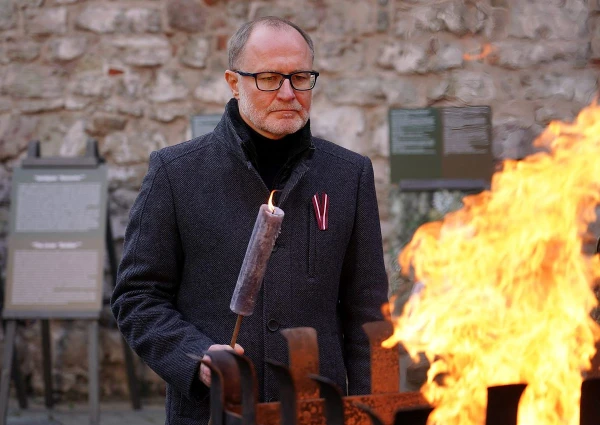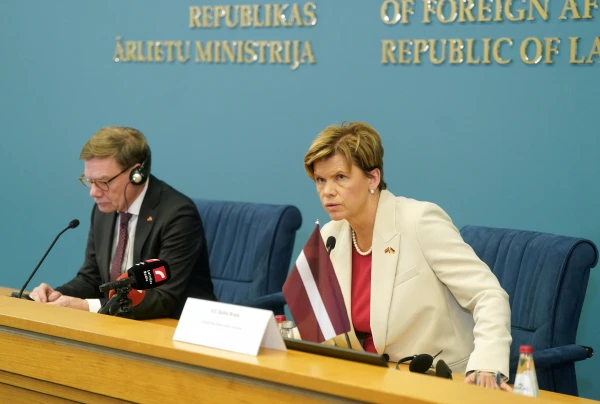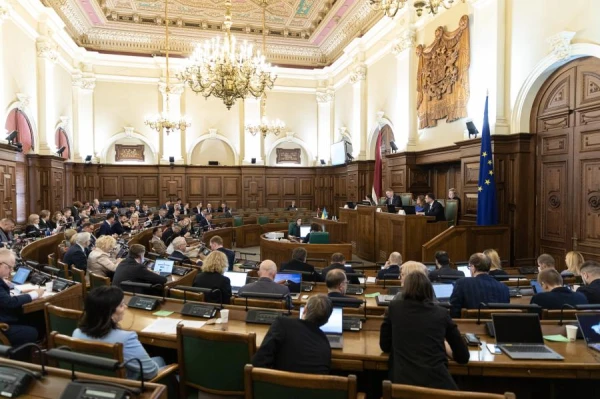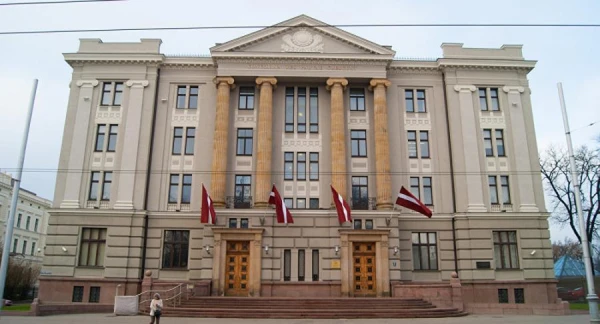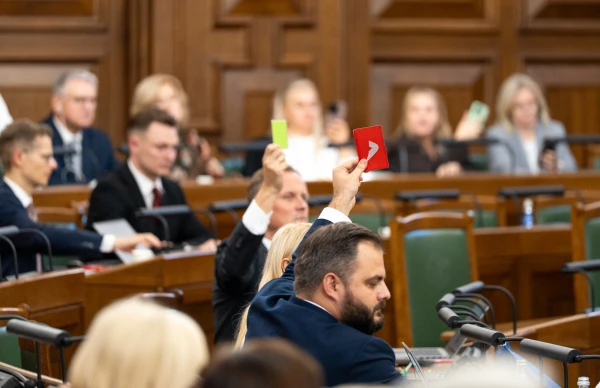
"The fight is not over yet," said Edmunds Jurevičs, head of the parliamentary faction of "New Unity," after the parliament voted for the final adoption of the bill on Latvia's withdrawal from the Istanbul Convention after a 14-hour session (!).
A Powerful Campaign of Pressure
Let us remind you that "New Unity" and the "Progressives" party were categorically against Latvia's withdrawal from this convention. And we must give them credit: finding themselves in the minority, they launched such an information-propaganda campaign that... many felt that if Latvia really withdrew from this convention, an apocalypse would occur: our country would be overwhelmed by a wave of violence, the world would turn away from Latvia, and it would become some sort of pariah in the European community.
One way or another, the vote in the Saeima was perceived by deputies from "New Unity" and the "Progressives" not as a defeat, but as... a directive to continue the struggle against their opponents. On the portal manabalss.lv, a petition was launched effectively calling on the president not to sign the bill and to return it to the Saeima — by the time of preparing this issue for print, 60,783 people had signed this appeal to Rinkēvičs!
Supporters of the bill are also not sitting idly by, and although they are currently lagging behind in such activity and pressure from the opponents of the bill, they too have called on their like-minded individuals to find the "old" initiative on the same portal manabalss.lv against the ratification of the Istanbul Convention and to start adding their signatures. More than 30,000 people have already signed against ratification, and a petition has also been started calling on the president to proclaim the bill on withdrawal from the Istanbul Convention.
Deputies from "New Unity" and the "Progressives" quickly appealed to the president urging him not to sign the bill. Their main arguments: allegedly, the procedure for discussing and adopting the bill was violated, withdrawal from the convention would adversely affect Latvia's image and even worsen the investment climate, and the adoption of the bill would lower the standards for ensuring human rights, which, in turn, contradicts the guarantees for ensuring human rights enshrined in a special section of the Satversme...
For their part, the parties that voted for withdrawal from the Istanbul Convention also sent letters to the head of state. They insist on the right of deputies in a parliamentary republic to make a decision on withdrawal from an international document, especially considering that the principles of protecting both women and all residents of the country from violence have long been incorporated into Latvian legislation, and the presence or absence of the convention does not affect Latvia's obligations to combat all forms of violence.
Rinkēvičs "Hostage" to the Convention
The president has found himself in a very difficult position. If he decides to return the bill for revision, he needs to provide clear legal arguments as to why he cannot sign the bill in its current form and what specifically needs to be changed in the document adopted by the Saeima. However, in such a scenario, firstly, there is a risk that the majority of deputies will show Rinkēvičs, excuse me, a finger in the pocket and will vote again for the adoption of the bill. In this case, the president will not be able to object and will be forced to sign the bill. Secondly, such a step by Rinkēvičs could lead to the right opposition plus the "Green Farmers," who will surely be represented in the new Saeima, not voting for his re-election for a second term.
If the president proclaims the law, he may lose support from both his former party "New Unity" and the "Progressives." Moreover, the president is now under pressure from international structures and even foreign diplomats, whom "New Unity" has also managed to involve in our essentially domestic political struggle — let us recall the recent letter from ambassadors of several European countries, as well as a letter from a couple of dozen deputies of the Verkhovna Rada of Ukraine urging Latvia not to denounce the Istanbul Convention!
Is Returning a Bad Omen?
It is noteworthy that in the 2.5 years of his presidency, Rinkēvičs has never returned adopted bills to the Saeima! We dare to assume that the head of state will most likely create a precedent and will not sign this bill. This will somewhat calm the agitated opponents of the bill on denouncement and may influence those opposition deputies who were not very keen on supporting the bill but were forced to comply with party discipline.
According to rumors from the corridors of power, there is hope that if these wavering deputies change their position, that is, switch to the side of the opponents of the bill, then... the Siliņa government will hold. After all, if those who changed their position are excluded from the factions from which they were elected, the opponents of the Siliņa government simply will not have enough votes to create another government.
However, it is not a fact that Siliņa and Co. will succeed in splitting the opposition. If they do not succeed, the Siliņa government itself will be under threat. It is generally hard to imagine how these three ruling parties will work together after everything that has happened. Especially against the backdrop of the prime minister's statements that the "Green Farmers" will have to answer for letting down their partners and the international community. How exactly to answer? What can Siliņa do? Any step she takes — for example, the dismissal of the head of the Ministry of Welfare, which the "Progressives" have long insisted on — will only accelerate the collapse of the government. Why would Siliņa need that?
A Crisis is Inevitable
It is obvious that before the final reading of the budget — which should happen in early December, it is extremely disadvantageous for the prime minister to collapse the government. Let us note that the first budget exam is already this week — the Saeima is to approve the 2026 budget project and the package of bills related to the budget, including the pension reform based on years of service.
One way or another, a government crisis seems inevitable...

